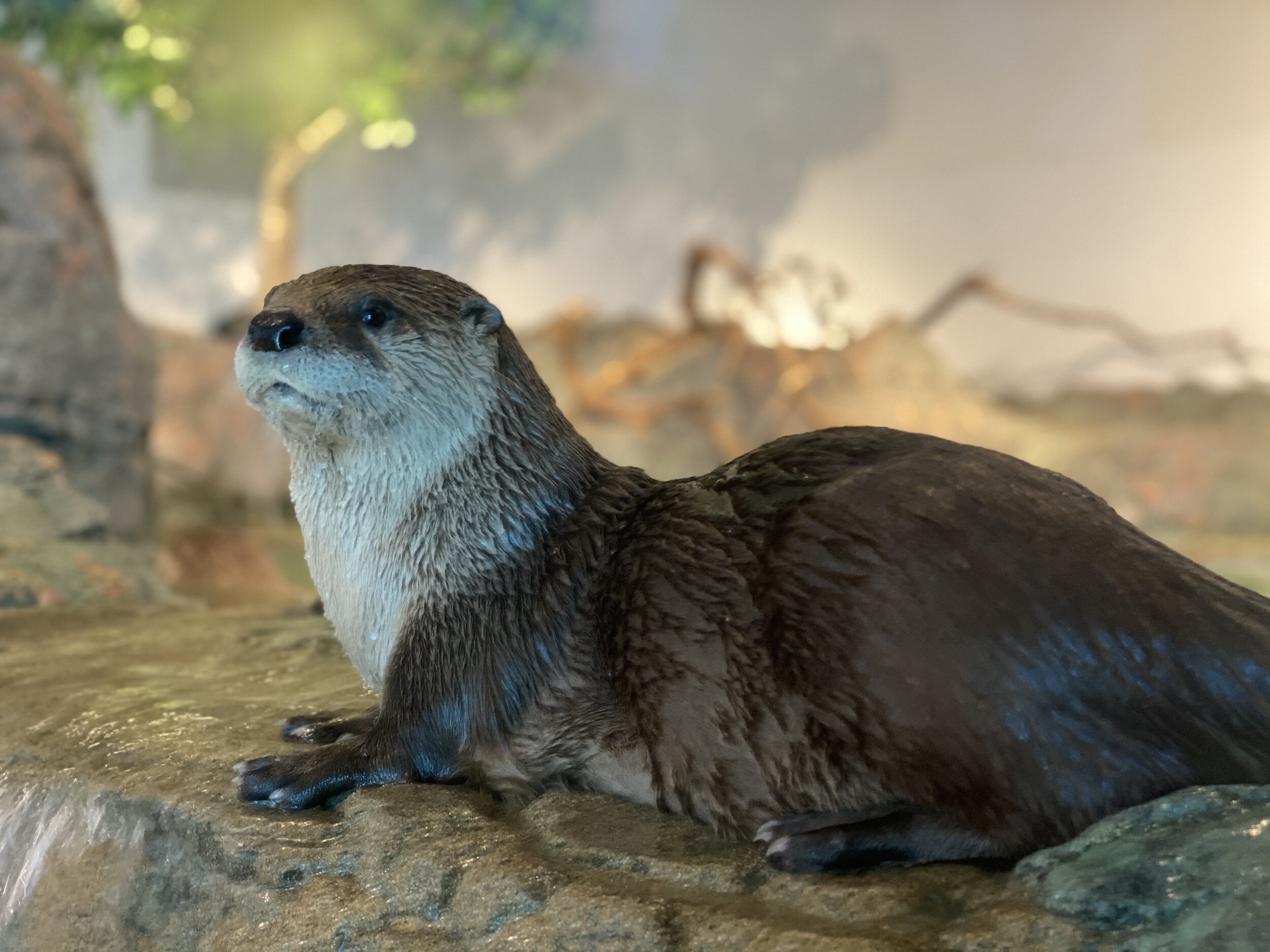North American River Otter
The North American river otter (Lontra canadensis), also known as the northern river otter or common otter, is a semiaquatic mammal endemic to the North American continent found in and along its waterways and coasts. An adult North American river otter can weigh between 5.0 and 14 kg (11.0 and 30.9 lb). The river otter is protected and insulated by a thick, water-repellent coat of fur.
North American river otters, like most predators, prey upon the most readily accessible species. Fish is a favored food among the otters, but they also consume various amphibians (such as salamanders and frogs), freshwater clams, mussels, snails, small turtles and crayfish. The most common fish consumed are perch, suckers, and catfish. Instances of North American river otters eating small mammals, such as mice and squirrels, and occasionally birds have been reported as well. There have also been some reports of river otters attacking and even drowning dogs.
The range of the North American river otter has been significantly reduced by habitat loss, beginning with the European colonization of North America. In some regions, though, their population is controlled to allow the trapping and harvesting of otters for their pelts. North American river otters are very susceptible to the effects of environmental pollution, which is a likely factor in the continued decline of their numbers. A number of reintroduction projects have been initiated to help halt the reduction in the overall population.

By Huntercoughlin, CC BY-SA 4.0, via Wikimedia Commons

By Huntercoughlin, CC BY-SA 4.0, via Wikimedia Commons

